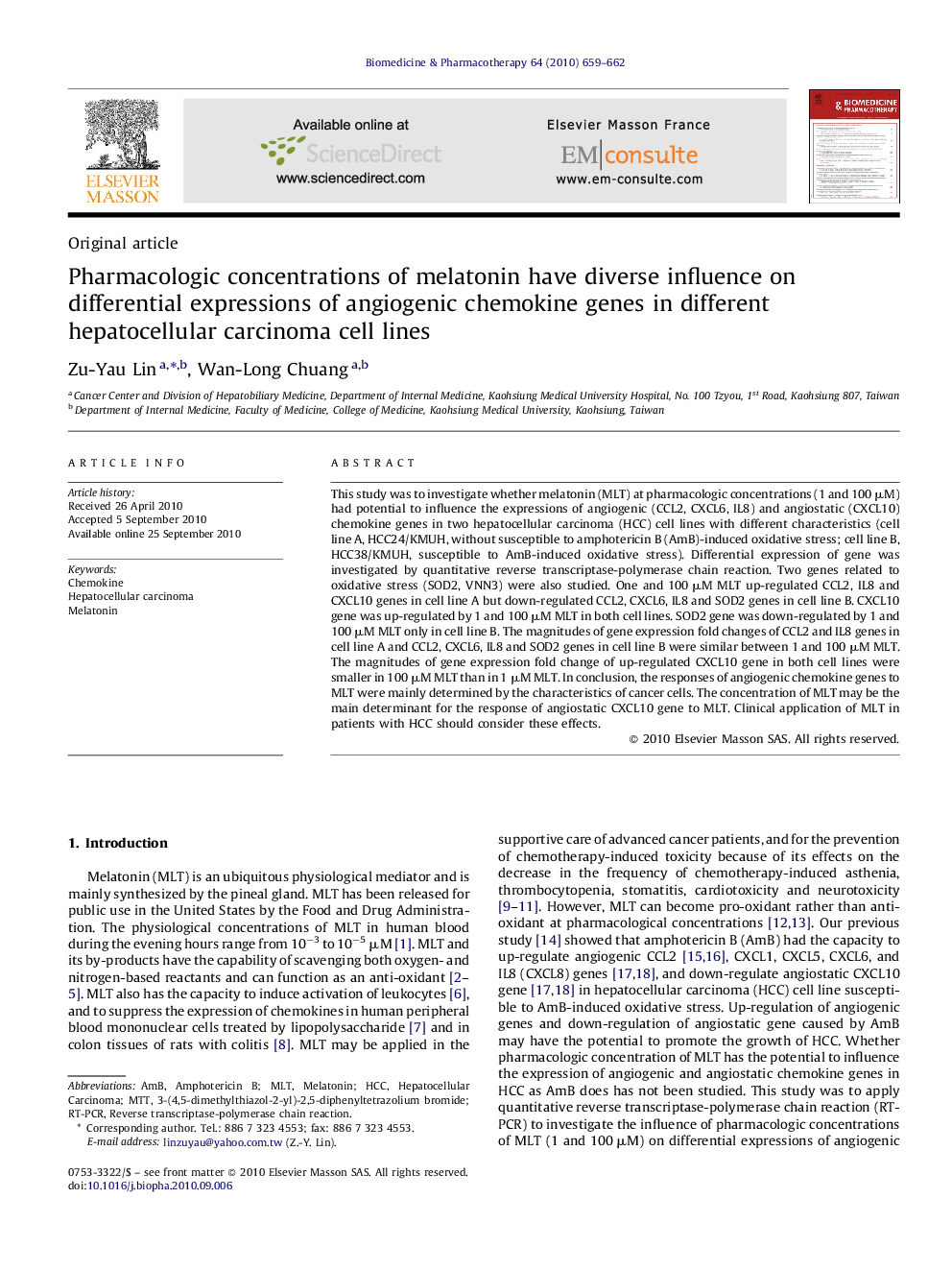| Article ID | Journal | Published Year | Pages | File Type |
|---|---|---|---|---|
| 2524896 | Biomedicine & Pharmacotherapy | 2010 | 4 Pages |
This study was to investigate whether melatonin (MLT) at pharmacologic concentrations (1 and 100 μM) had potential to influence the expressions of angiogenic (CCL2, CXCL6, IL8) and angiostatic (CXCL10) chemokine genes in two hepatocellular carcinoma (HCC) cell lines with different characteristics (cell line A, HCC24/KMUH, without susceptible to amphotericin B (AmB)-induced oxidative stress; cell line B, HCC38/KMUH, susceptible to AmB-induced oxidative stress). Differential expression of gene was investigated by quantitative reverse transcriptase-polymerase chain reaction. Two genes related to oxidative stress (SOD2, VNN3) were also studied. One and 100 μM MLT up-regulated CCL2, IL8 and CXCL10 genes in cell line A but down-regulated CCL2, CXCL6, IL8 and SOD2 genes in cell line B. CXCL10 gene was up-regulated by 1 and 100 μM MLT in both cell lines. SOD2 gene was down-regulated by 1 and 100 μM MLT only in cell line B. The magnitudes of gene expression fold changes of CCL2 and IL8 genes in cell line A and CCL2, CXCL6, IL8 and SOD2 genes in cell line B were similar between 1 and 100 μM MLT. The magnitudes of gene expression fold change of up-regulated CXCL10 gene in both cell lines were smaller in 100 μM MLT than in 1 μM MLT. In conclusion, the responses of angiogenic chemokine genes to MLT were mainly determined by the characteristics of cancer cells. The concentration of MLT may be the main determinant for the response of angiostatic CXCL10 gene to MLT. Clinical application of MLT in patients with HCC should consider these effects.
